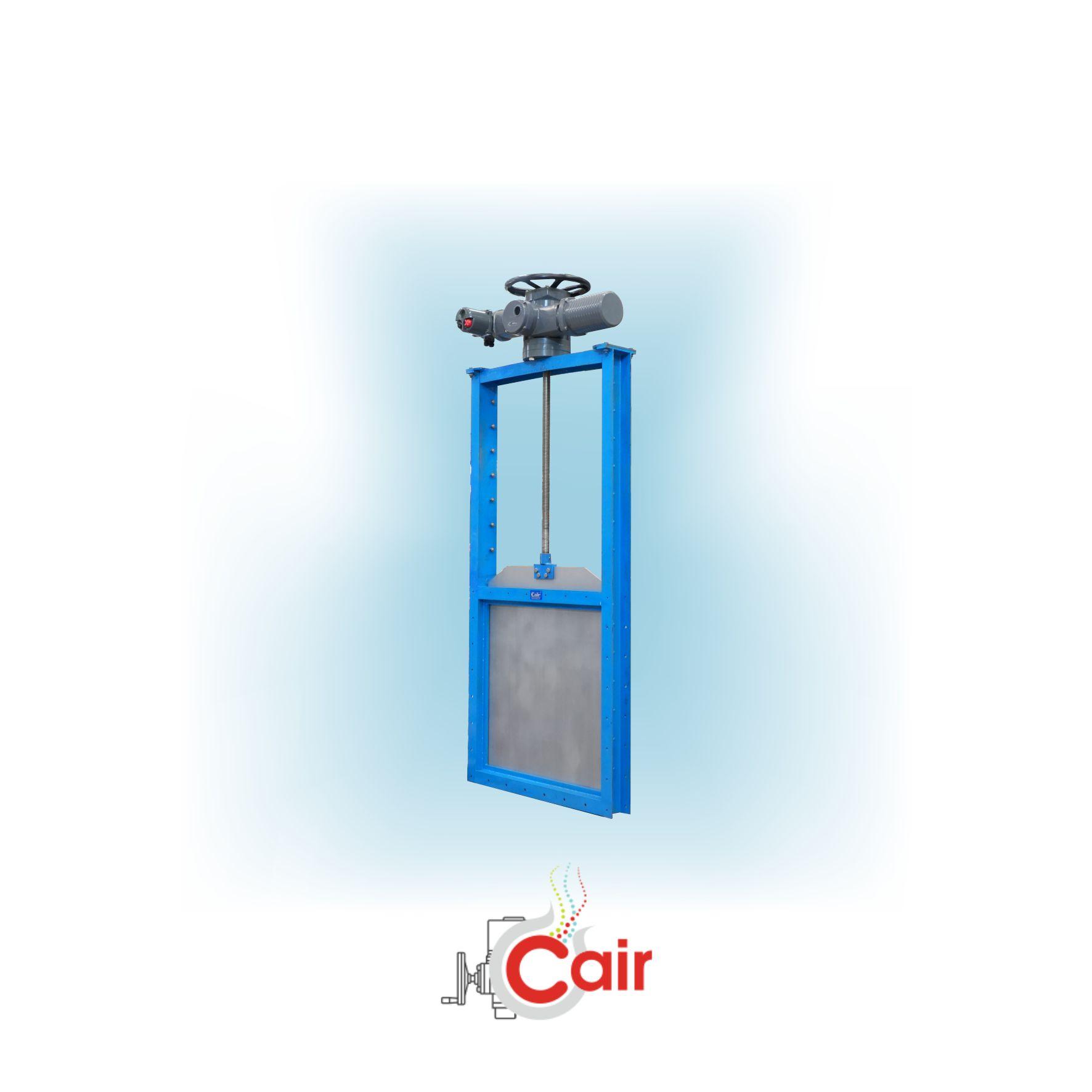Slide Gate Valve vs. Knife Gate Valve: Key Differences Explained

In industries dealing with bulk materials, flow control is essential. Valves play a critical role in regulating this flow, especially in sectors like mining, wastewater, cement, and food processing. Among the many options available, Slide Gate Valves and Knife Gate Valves are two commonly used types. While they may look similar, their design, function, and application are quite different.
In this article, we’ll break down the key differences between slide gate valves and knife gate valves to help you choose the right one for your operation.
What is a Slide Gate Valve?
A Slide Gate Valve is primarily designed for dry bulk material handling. It uses a flat slide plate that moves in and out of the flow path to control the passage of materials such as grain, cement, powders, and granules. These valves are often used in silo discharges, conveyors, and bulk storage systems.
Key Features:
-
Designed for dry solids and powders
-
Operates using a sliding gate plate
-
Typically mounted horizontally
-
Suitable for low-pressure applications
What is a Knife Gate Valve?
A Knife Gate Valve is designed to cut through thick liquids or slurry. It has a sharp-edged gate that slices through materials as it closes. Common in industries handling wastewater, pulp, and sludge, this valve performs well under heavy-duty, high-pressure environments.
Key Features:
-
Designed for liquids, slurries, and sludge
-
Features a sharp-edged blade
-
Handles viscous fluids and abrasive media
-
Often used in vertical pipelines
Slide Gate Valve vs. Knife Gate Valve – The Differences
1. Application Use
-
Slide Gate Valve: Ideal for bulk solids like grains, cement, and pellets. Not designed for liquid or slurry applications.
-
Knife Gate Valve: Perfect for liquids, especially viscous or slurry-type media like wastewater, paper pulp, or chemicals.
2. Design & Structure
-
Slide Gate Valve: Has a simpler design with a sliding plate that opens/closes horizontally. Often flanged or square.
-
Knife Gate Valve: Includes a sharp-edged blade designed to "cut" through semi-solid or thick liquid media. Typically round.
3. Sealing Capability
-
Slide Gate Valve: Sealing is less critical in dry applications, and it may allow some leakage depending on material.
-
Knife Gate Valve: Offers tight shut-off for slurry or liquid, especially when equipped with resilient or metal seats.
4. Maintenance Needs
-
Slide Gate Valve: Easy to maintain due to its simple structure and dry operation.
-
Knife Gate Valve: Requires more attention due to potential buildup from viscous or abrasive materials.
5. Cost and Availability
-
Slide Gate Valve: Typically more cost-effective and easier to install for dry applications.
-
Knife Gate Valve: Slightly more expensive due to its robust construction for handling challenging fluid conditions.
When Should You Use a Slide Gate Valve?
Choose a Slide Gate Valve if:
-
Your material is dry (grain, powder, sand).
-
You need a valve for bulk discharge.
-
Operating pressure is low.
-
Space constraints require a flat or low-profile valve.
When Should You Use a Knife Gate Valve?
Choose a Knife Gate Valve if:
-
You are dealing with slurry, sludge, pulp, or viscous fluid.
-
You need strong shut-off even under pressure.
-
The media contains solid particles or abrasives.
-
Your process demands a heavy-duty solution.
Common Industries That Use Each Valve
| Industry | Slide Gate Valve | Knife Gate Valve |
|---|---|---|
| Cement & Aggregates | ✓ | |
| Grain & Food Handling | ✓ | |
| Wastewater Treatment | ✓ | |
| Paper & Pulp | ✓ | |
| Mining & Slurry | ✓ | |
| Power Plants | ✓ (for ash) | ✓ (for slurry) |
Conclusion
Both Slide Gate Valves and Knife Gate Valves offer reliable performance, but their effectiveness depends on the material being handled and the system requirements. Understanding the key differences helps in choosing the right valve, ensuring smoother operations, reduced downtime, and better flow control.
If you're working with dry bulk materials, go for a slide gate valve. For wet, thick, or abrasive fluids, a knife gate valve is your best bet.
Looking for Reliable Valve Manufacturers?
If you’re searching for trusted valve manufacturers in Ahmedabad or anywhere in India, make sure you partner with companies that specialize in both types and offer customization as per your industry needs.
Email : resilientgatevalve@gmail.com
Location: Plot No. 129/2, Shed No. 1, Cair Estate, Ranipur Road, Narol, Ahmedabad 380028, Gujarat, INDIA.
- Vibnix Blog
- Politics
- News
- Liberia News
- Entertainment
- Technology
- Formazione
- Art
- Causes
- Crafts
- Dance
- Drinks
- Film
- Fitness
- Food
- Giochi
- Gardening
- Health
- Home
- Literature
- Music
- Networking
- Altre informazioni
- Party
- Religion
- Shopping
- Sports
- Theater
- Wellness



